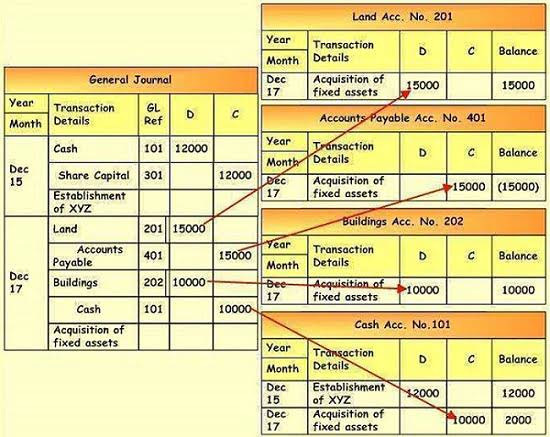
Macroeconomics studies the distribution of resources within an ecosystem, such as a nation. It analyzes factors like the inflation or productivity rate that affect how efficiently the economy works. Microeconomics studies the behavior and decision-making of individuals and businesses within an economic ecosystem. An accountant cannot do the same work as a Certified Public Accountant whereas a CPA can do all work of the accountant. Unlike the Accountant, the Certified Public Accountant has a higher position in the financial and business circles. It is the Certified Public Accounts who are capable of advising on the financial aspects of a company.
Can Accountants Also Be Tax Preparers?
- Continuing education requirements for Public Accountants vary depending on their specific roles and responsibilities.
- For individuals and businesses with straightforward financial needs, hiring an accountant might be sufficient.
- States also have varying continuing education requirements that CPAs must complete to keep their designation.
- A Certified Public Accountant (CPA) is an accountant who has met specific state and national requirements and passed the Uniform CPA Examination.
- Simply put, a CPA is likely to have greater accounting knowledge than those without the designation, and to be capable of performing duties that regular accountants cannot.
It’s important to note, however, that CPAs must work to maintain their licensure. Meeting ongoing continuing professional education requirements and abiding by the AICPA’s Code of Professional Conduct are two key commitments that they must fulfill. Careers for unlicensed accountants, according to Indeed, are found mostly in the area of private accounting. In these careers, the accountant works internally for a single employer, such as a public or private corporation.

When Should You Hire a Tax Preparer?

Accountants, on the other hand, can provide valuable financial advice and help with tax preparation, but may not possess the same level of HOA Accounting expertise or legal standing as a CPA. Ultimately, the choice between a CPA and an accountant will depend on your specific needs and the complexity of your financial situation. CPAs can also represent clients in front of the IRS state tax authorities during a tax audit, whereas a general accountant cannot. If you need someone to take care of your small business’ financial needs, you may wish to choose a general accountant.
Accountant Education and Training
However, if you are dealing with more complex financial issues, working with a CPA offers greater assurance, expertise, and the ability to navigate complicated tax and financial laws. For small businesses, choosing between a CPA and an accountant depends on the business’s specific needs. If your business is relatively straightforward and only difference between a cpa and an accountant requires basic bookkeeping, financial reporting, or simple tax returns, hiring a non-CPA accountant can be an affordable and practical choice. The long-term career outlook for Public Accountants is generally positive, with continued demand for accounting services across various industries. As businesses evolve and regulatory requirements change, Public Accountants will play a crucial role in helping clients navigate complex financial challenges.
- After the exam, you must obtain relevant work experience, typically 1-2 years under a licensed CPA.
- In many cases, using both professionals—an accountant for regular functions and a CPA for more complex tasks—can provide well-rounded financial support.
- While “accountant” and “Certified Public Accountant” (CPA) are often used interchangeably, they represent distinct professional designations with differing qualifications and scopes of practice.
- You typically only need to complete around 120 hours to earn your bachelor’s degree, so you’ll have to take on additional electives or consider doing a minor.
- The AICPA offers a Salary Comparison Tool that helps professionals compare their salaries to CPAs.
- While their roles are broad, accountants generally offer essential services to keep financial operations smooth and compliant.
- Many bookkeepers and accountants specialize not only in the requirements of their field but also in using this software.

Please do not consider these figures as a fixed range since they vary according to the employee, employer, and the underlying scenario. Responsibilities include recording transactions, reconciling accounts, and preparing financial statements. These statements, like balance sheets and income statements, show an entity’s financial health. CPAs enjoy strong demand for their services, particularly in areas such as audit, tax, and advisory services.

A CPA credential is highly regarded, and there are some accounting services that only licensed CPAs can perform. For example, licensed CPAs have the legal authority to file reports with the SEC (Securities and Exchange Commission) and conduct audits of financial statements to ensure compliance. Choosing between an EA and CPA certification also depends on the career opportunities and flexibility you seek. EAs are tax experts who can represent clients before the IRS, making them highly valuable during tax season.
- CPAs typically do most of their work for public accounting firms of all sizes.
- Key tasks an accountant completes that a bookkeeper typically does not are tax preparation and filing.
- WGU’s bachelor’s in accounting program contains career-aligned courses in taxation, financial accounting, auditing, organizational behavior, economics, and other essential subjects.
- Publicly traded companies rely on accountants to file quarterly and annual financial reports required by the Securities and Exchange Commission (SEC).
- A CPA is also appropriate for complex tax planning, navigating significant tax events like selling a business or receiving a large inheritance, or facing an IRS audit.
- Accountants are essential for maintaining accurate financial records and providing insights into a business’s financial performance.
Although the above lists several duties of a CPA, it is important to note that CPAs should not offer services where they both audit and consult for the same business. Learn more about careers one might pursue as a CPA vs. an accountant in the section below. May 2024 Bureau of Labor Statistics salary data for Accountants and Auditors reflect state and national data, not school-specific information. According to the AICPA, less than 50 percent of exam-takers pass each section on their first attempt, making it one of the most challenging professional examinations in the United States. https://arsen-band.de/2021/05/the-best-accounting-software-for-consultants-bench/ It also helps to find someone who is knowledgeable about the laws in your particular state, especially as it relates to taxes. Otherwise, you could end up working with someone who isn’t sufficiently knowledgeable to provide reliable advice or worse, who provides bad advice.